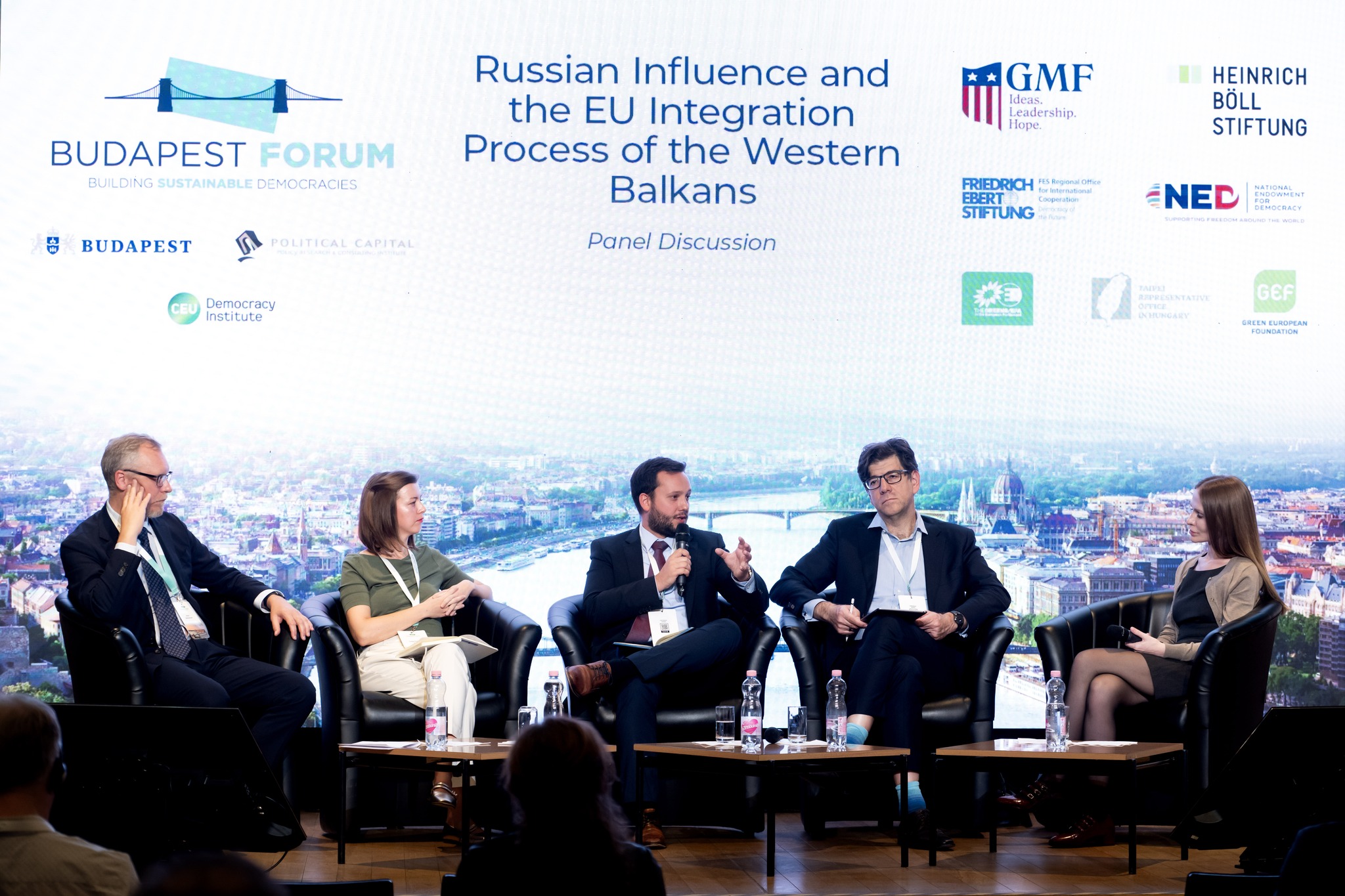Budapest Forum 2023 - Russian Influence and the EU Integration Process of the Western Balkans
2023-10-19
Speakres
- Goran Buldioski, Executive Director, Open Society – Europe and Central Asia
- Žiga Faktor, Deputy Director and Head of Brussels Office, EUROPEUM Institute for European Policy
- Tanja Dramac Jiries, Deputy Director, Europe, National Endowment for Democracy
- Anton Shekhovtsov, Director, Centre for Democratic Integrity
Moderator: Una Hajdari, freelancer journalist
Background: Discussant talked about Russian influence, especially in the context of EU enlargement. Many countries in the Western Balkans are still on their EU integration path. This euphoria was part of this process, where the EU believed it could be as thorough as possible in reforming these post-conflict countries and bringing them within the loop of the EU. But pretty early on there was an interest on the side of Russia to influence these processes or to influence the Balkans, the Western Balkans. This is a process that has been fluctuating in intensity depending on Russia's own foreign policy goals.

Main takeaways
- In the Western Balkan region Russia appears as an investor and as a meddler. Russia is not offering any new or alternative security or economic framework for the Western Balkans in general. It is only interested in destabilising the region.
- Goran Buldioski introduced the Russian toolkit in Western Balkan: Russia is a formal investor in the Balkans – mainly in the energy sector. Russia is a meddler and it is not only about the disinformation space, it is also about illicit finance that goes into the political system. Also, Russia has been using political violence such as the alleged coup in Montenegro and a couple of other isolated cases.
- According to Anton Shekhovtsov, Serbia remains one of the most pro-Russian countries among other Western Balkan countries. But despite the fact that it is essentially very pro-Russian, Russia still maintains its own malign influence operations there. There are three areas where the Russian influence is particularly strong, or at least significant: energy policies, socio-political initiatives and media.
- Since the start of the Russian war against Ukraine, Moscow has aimed even more aggressively to block the integration of Serbia in particular, but also in general, Western Balkan countries. It does so not only through sociopolitical or socio-cultural initiatives, not only through media, not only through the weaponisation of energy policies but also through attempts to escalate ethnic and religious tensions using radicals, extremists, and ultranationalists.
- In the case of Bosnia Herzegovina, Tanja Dramac Jiries argued that any malign influence is really dependent upon two things: structural vulnerabilities and the willingness or indigenous kind of willingness to be a proxy or a willing client and a partner. Bosnia is in this perpetual electoral cycle so the kind of campaigning never really ends and a lot of our grantees and civil society have noted that a lot of the portals that are completely spewing Russia propaganda are popping up just before the elections and then disappear.
- Žiga Faktor highlighted that a lot of roads go down to Belgrade when it comes to the path of most of the Western Balkan countries on their European journey. Serbia affects the situation in the future of Kosovo; the future of Bosnia through the Republika Srpska and all the others around it affects, to a certain extent, the situation in Montenegro with the current political crisis.
- There is a certain fatigue in the Western Balkan regarding the European enlargement policy but the enlargement is back on the table. It has been a political priority for most of the EU member states for a long time: it has turned from democratisation and economic ties to the security aspects.
Policy recommendations
- The EU has to learn from the failed integration process of Western Balkan.
- Among many other decisions or policies that the EU could enact in the Western Balkans, one thing is crucial: there is a need for more EU Stratcom, particularly in Serbia.
Copyright 2025. Political Capital Policy Research and Consulting Institute, all rights reserved.

